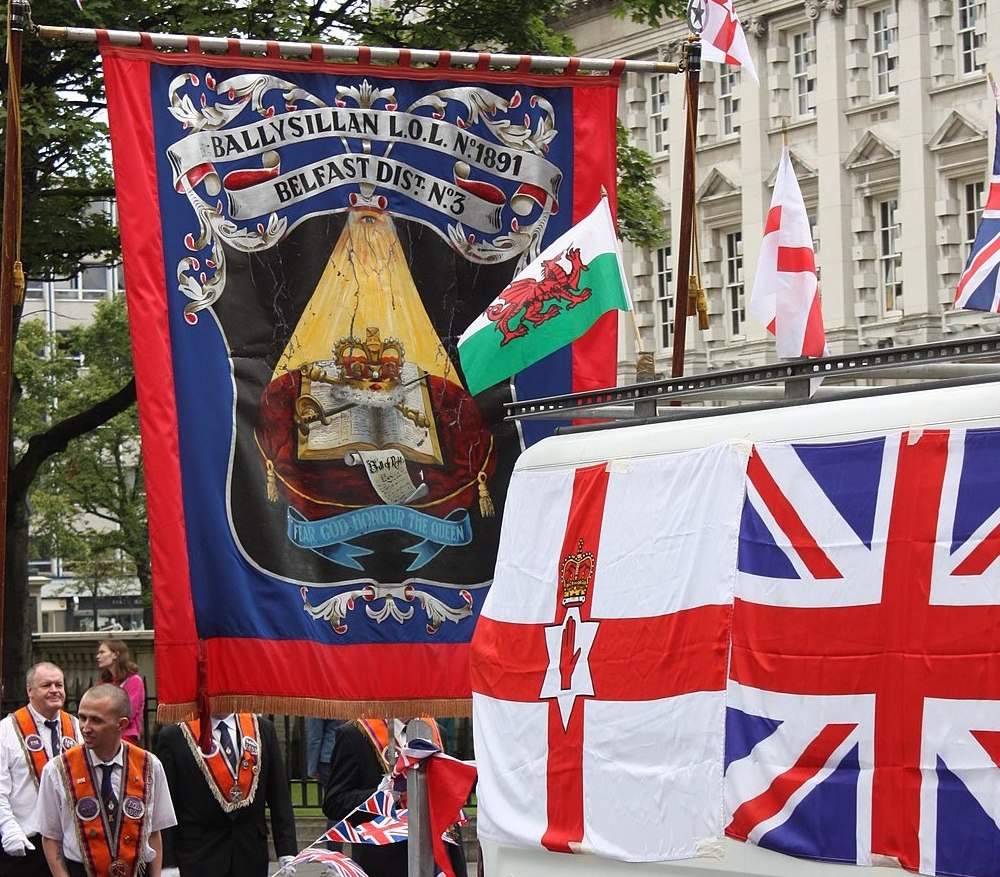
When Politics are Sacralized: Comparative Perspectives on Religious Claims and Nationalism addresses urgent concerns about the relationship between religion, nationalism, and violence. The use of the terms religious claims and sacralize in the book’s title prompt readers to move beyond taken-for-granted assumptions that religion is inherently violent or that religion in and of itself causes conflict or makes conflict more deadly.
Such assertions have been put forward in the academic literature as well as in the public sphere, especially in discussions about Israel/Palestine, the case study that comprises the backbone of the book. After Rouhana and Shalhoub-Kevorkian’s concise introduction, which includes a useful three-mode framework for understanding sacralized politics, the first five chapters delve into the case of Israel, while Khaled Hroub’s final chapter addresses the relationship between Palestinian nationalism and religion.
The focus on Israel allows the editors (and contributors) to argue convincingly for scholarship that pays close attention to the colonial roots of sacralized politics. Settler-colonial theory is at the heart of the book. But the value of comparative volumes such as this one lies in their ability to bring together different examples, identify commonalities and divergences, and impart lessons that can be learned about and applied across various cases.
The Trouble with Religion and Colonialism in Northern Ireland
The only other case that is addressed in more than one chapter is Northern Ireland, which is one of the world’s most-studied cases of religion and peacebuilding. It featured in R. Scott Appleby’s field-shaping The Ambivalence of the Sacred as a site “saturated” with effective faith-based peacebuilders. It also was the empirical laboratory for John Brewer’s theoretical framework that sought to explain faith-based contributions to peacebuilding.
The value of comparative volumes such as this one lies in their ability to bring together different examples, identify commonalities and divergences, and impart lessons that can be learned about and applied across various cases.
Apart from the work of scholars specializing in religion (myself included), however, scholars studying Northern Ireland’s Troubles (circa 1968–1998) have downplayed the role of religion, with John McGarry and Brendan O’Leary arguing strongly for religion’s insignificance. Their description of religion as an “ethnic marker” has been widely accepted. Such readings have been contested by Steve Bruce in his work on the impact of preacher-politician Reverend Ian Paisley and by Claire Mitchell in her emphasis on the social significance of religion.
Similarly, the extent that colonialism is a constituent cause of Northern Ireland’s twentieth-century violence has often been brushed aside, particularly by those advocating a “two communities” approach to understanding the conflict. This approach emphasizes internal differences between Protestant-Unionist-Loyalist (PUL) and Catholic-Nationalist-Republican (CNR) communities and underplays the wider role of the British state, particularly as a historic colonial power. Moreover, PUL understandings of the violence are often framed in terms of terrorist violence and state responses to it, in direct opposition to settler-colonial interpretations of conflict. This volume’s foregrounding of settler colonialism helps us understand not only its explanatory power, but also contestation and resistance to it across different contexts.
At first glance, the tendency to side-step the religious and colonial aspects makes the Northern Ireland case sit uneasily in the volume. The titles of the two chapters reflect this: David Lloyd writes on “Protestantism and Settler Identity: The Ambiguous Case of Northern Ireland” (emphasis mine), while Liam O’Dowd’s chapter is titled “Does Religion Still Matter?”
Settler Colonialism and Religious Claims
Lloyd argues that a settler-colonial framework helps explain how Protestantism/Unionism/Loyalism dominated Northern Ireland from its creation in 1921. Unionist elites structured politics and society to protect their interests and religious claims were constructed to justify division (and superiority). This dovetails with other chapters in the volume, which emphasize how religious claims are used to legitimate already powerful political structures.
Lloyd’s chapter contains a striking photograph of a flag incorporating the Star of David with traditional Loyalist symbols: the red hand of Ulster and the British crown. There is another photograph of a mural proclaiming Catholic-Nationalist-Republican solidarity with Palestine. Of course, these images cannot be understood as popular endorsements of settler-colonial theory. But they do demonstrate how, on the streets of Northern Ireland, Loyalists identify with an Israel that they perceive as under attack by terrorists, while Republicans identify with Palestinians whose land has been occupied.
Lloyd contrasts Northern Ireland with the Republic of Ireland, which he characterizes as a post-colonial society in which Catholic and Protestant identities have lost their salience. I agree with Lloyd on this point to a certain extent, although he does not fully acknowledge that Protestants experienced real and structural violence in the early years of the Irish state, prompting the migration of some Protestants across the border. Nonetheless, this should not detract from Lloyd’s wider point that in Northern Ireland political and social structures have manufactured colonial mentalities.
On the streets of Northern Ireland, Loyalists identify with an Israel that they perceive as under attack by terrorists, while Republicans identify with Palestinians whose land has been occupied.
There is an important lesson in Lloyd’s focus on structures: when structures change, identities and ideologies may follow and also change. More than two decades after Northern Ireland’s peace agreement this process has been halting and slow. But the dramatically reduced levels of violence and increases in those who identify as neither unionist nor nationalist nevertheless provide some hope for other violent contexts—especially if powerful external actors (like the British, Irish, and American governments, in the Northern Ireland case) incentivize structural change.
How Religion Still Matters
If Lloyd’s concerns are with structural changes in Northern Ireland, O’Dowd focuses more on drawing on the Northern Ireland case to critique the secular-religious dichotomy that has been prominent in global debates. He argues that a fuller understanding of the relationship between religion, nationalism, and violence can be gained by understanding religion “primarily as a category of practice (as vernacular) rather than as a category of belief.” O’Dowd’s conceptualization of vernacular practice is not rooted simply or solely in activities like churchgoing or other forms of religious observance. Rather, it is grounded in an urban geography of conflicted cities which contain religious sites that are important for place-making and marking territorial segregation.
In Belfast, such sites include church buildings, which remain focal points for marking territory in a still largely segregated city; memorial gardens and plaques for the Troubles’ dead (which are often in or near church buildings); the routes of Orange Order parades, understood as mechanisms for marking, maintaining, or claiming territory; and funerals and the memory of funerals, including those for members of paramilitaries. As such, vernacular religious practice helps keep the memory of violence alive in often divisive ways.
These observations resonate with my own research for Considering Grace: Presbyterians and the Troubles. While the book focused on the experiences of churchgoing Presbyterians, the importance of funeral practices and church-based memorialization for the wider PUL community shone through.
The concept of vernacular religion expands the category of religion to many who would not identify as religious or engage in conventional religious observance. For O’Dowd, this is how religion still matters—even as Northern Ireland becomes more “secular” in terms of adherence to Christian beliefs and practices.
But What is Religion?
O’Dowd’s contribution is valuable because it goes against the main thrust of many of the other chapters in the book: it is not describing how religious claims are used to justify state power. Hroub’s chapter also goes against the grain, concentrating on the lack of religious claims within Palestinian nationalism. These chapters provide a complementary perspective, inviting readers beyond the focus on religious claims to ask: What exactly is religion? In particular, O’Dowd invites readers to look beyond the religious-secular dualism and in doing so challenges the way that (primarily) western scholars have framed debates about religion and nationalism.
Likewise, my work on Northern Ireland resists the reduction of religion to religious claims and instead emphasizes how religion is embedded in everyday practices and assumptions about one’s own religious community. These practices and assumptions can be reinterpreted to drive transformation. For example, during the Troubles grassroots leaders in the social action organization Evangelical Contribution on Northern Ireland (ECONI) challenged assumptions about their own religious community, and disputed religious claims made by prominent politicians like the Reverend Ian Paisley.
Ultimately, O’Dowd’s contribution supports the book’s assumption that religious claims lie behind sacralized politics. But the question, “What is religion?” remains open throughout the volume, inviting further research.
Future Debates
My more recent research takes up that invitation, continuing to resonate with the “everyday” turn in the study of religion. It focuses on areas such as the role of prayer amongst faith-based peacebuilders and the role of clergy during periods of intense violence. For the late Fr Gerry Reynolds, the practice of prayer was intertwined with his peacebuilding activism, which was in part motivated by repudiating oppositional aspects of Catholic nationalist identity. My study of Presbyterians during the Troubles argued that reducing religion to high-level religious claims has meant that one of clergy’s primary roles in the aftermath of violence has been overlooked: acting as “first responders” who provide pastoral support for victims through prayer and presence. Many of these faith-based peacebuilders and “first responders” resist what this book describes as sacralized politics; and for them, religion is not “vernacular,” it is intense and personal.
To me, such distinctions lie at the heart of future debates in this field. This volume provides a great service in prompting us to begin thinking through them.

